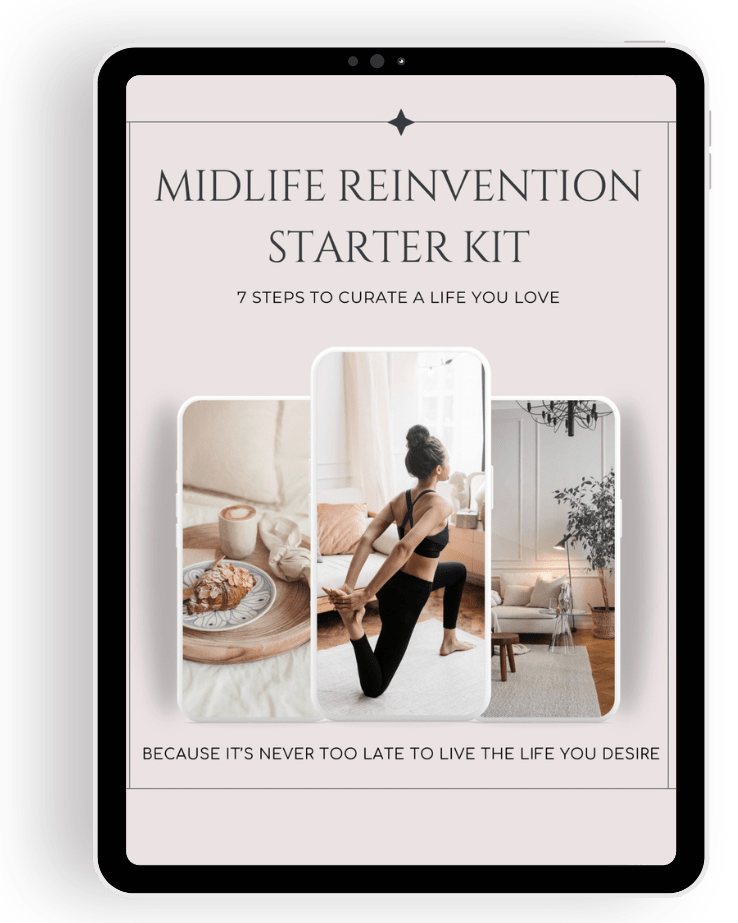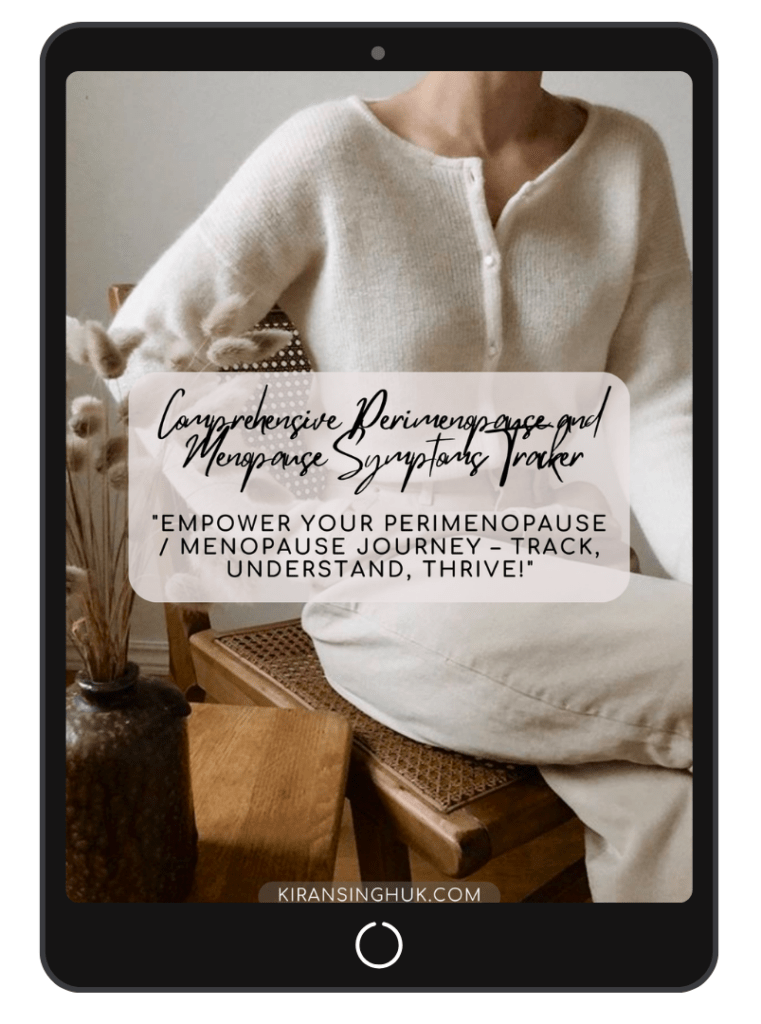Perimenopause is one of the most profound transitions a woman’s body undergoes, yet it remains widely misunderstood. This stage, which typically begins in a woman’s 40s but can start earlier, is the body’s gradual shift towards menopause – the point when menstrual cycles cease permanently. Perimenopause can last anywhere from 4 to 10 years, and during this time, fluctuating hormones impact virtually every system in the body.
This guide will help you understand exactly how perimenopause affects your body, using the latest research to provide clarity, validation, and actionable steps to support your well-being.

1. The Hormonal Shifts Driving Perimenopause
The hallmark of perimenopause is hormonal fluctuation, particularly in oestrogen, progesterone, and testosterone. Unlike menopause, where hormones remain low and stable, perimenopause is defined by erratic changes, leading to a rollercoaster of symptoms.
Oestrogen: The Unpredictable Fluctuator
- Oestrogen doesn’t just gradually decline—it surges and crashes unpredictably.
- High oestrogen levels can cause breast tenderness, anxiety, heavy periods, and bloating.
- Low oestrogen phases contribute to hot flashes, night sweats, brain fog, and vaginal dryness.
Progesterone: The Calming Hormone in Decline
- Progesterone starts declining in the mid-to-late 30s, leading to more irregular periods, sleep issues, and mood swings.
- It plays a critical role in reducing anxiety and promoting restful sleep, so its decline often results in insomnia and increased stress sensitivity.
Testosterone: The Forgotten Player
- Women produce small amounts of testosterone, which impacts muscle mass, libido, and energy levels.
- Its gradual decline contributes to fatigue, low motivation, and reduced sex drive.

2. How Perimenopause Affects Different Systems in Your Body
A. The Brain & Cognitive Function
Common symptoms: Brain fog, memory lapses, trouble concentrating.
Oestrogen supports neurotransmitters like serotonin and dopamine, which are crucial for mental clarity and emotional balance. As oestrogen fluctuates, women experience brain fog, forgetfulness, and difficulty focusing.
🔹 Latest Research: A 2023 study in Neurology found that women in perimenopause are at higher risk of cognitive decline due to oestrogen fluctuations but that lifestyle changes (nutrition, exercise, stress reduction) can significantly improve cognitive function.
Support Strategies:
- ✔ Increase omega-3 fatty acids (found in salmon, walnuts, flaxseeds) to support brain health.
- ✔ Prioritise sleep and mindfulness to manage stress-related cognitive dysfunction.
- ✔ Engage in mentally stimulating activities like puzzles, reading, or learning a new skill.
B. Metabolism & Weight Gain
Common symptoms: Unexplained weight gain, especially around the abdomen, slowed metabolism.
Perimenopause leads to insulin resistance, meaning your body struggles to regulate blood sugar as efficiently. Lower progesterone levels also make it easier for the body to store fat, particularly visceral fat (around the organs), which increases the risk of heart disease.
🔹 Latest Research: A 2024 Lancet study confirmed that midlife weight gain isn’t just about diet but hormonal changes affecting fat distribution and metabolism.
Support Strategies:
- ✔ Eat balanced meals with protein, healthy fats, and fibre to keep blood sugar stable.
- ✔ Avoid crash diets – they slow metabolism further. Instead, focus on strength training and movement to maintain muscle mass.
- ✔ Manage stress and sleep, as high cortisol contributes to abdominal fat storage.
C. The Cardiovascular System
Common symptoms: Increased heart palpitations, higher blood pressure, higher cholesterol.
Oestrogen has a protective effect on the heart, keeping blood vessels flexible and cholesterol levels balanced. As oestrogen fluctuates and declines, the risk of hypertension, high cholesterol, and cardiovascular disease rises.
🔹 Latest Research: A 2022 American Heart Association study highlighted that women in perimenopause face a significant increase in heart disease risk due to declining oestrogen.
Support Strategies:
- ✔ Increase intake of heart-healthy foods like leafy greens, nuts, seeds, and fatty fish.
- ✔ Engage in regular aerobic activity (e.g., walking, dancing, cycling) to support heart health.
- ✔ Monitor cholesterol and blood pressure with regular check-ups.
D. The Musculoskeletal System
Common symptoms: Joint pain, muscle loss, increased risk of osteoporosis.
Oestrogen plays a crucial role in bone density and muscle maintenance. As it declines, bone loss accelerates, and joints become more prone to inflammation and pain.
🔹 Latest Research: A 2023 Journal of Bone Research study found that women who engage in regular strength training reduce their risk of osteoporosis by 40%.
Support Strategies:
- ✔ Prioritise strength training to maintain bone and muscle mass.
- ✔ Ensure adequate calcium (1,200 mg daily) and vitamin D for bone strength.
- ✔ Reduce inflammatory foods (processed sugars, refined carbs) to ease joint pain.
E. Sleep & Energy Levels
Common symptoms: Insomnia, night sweats, waking up exhausted.
Perimenopause disrupts sleep due to lower progesterone (which promotes relaxation) and higher cortisol (which keeps you awake at night). Hot flushes and night sweats make things worse.
🔹 Latest Research: A 2024 study in Sleep Medicine found that women who practice pre-bedtime relaxation techniques reduce night waking by 50%.
Support Strategies:
- ✔ Maintain a consistent bedtime routine, limiting screens and caffeine before bed.
- ✔ Try magnesium supplements to support relaxation.
- ✔ Keep your room cool and dark to reduce night sweats.

F. Mood & Emotional Well-being
Common symptoms: Anxiety, depression, irritability, mood swings.
Fluctuating oestrogen impacts serotonin and dopamine levels, increasing the risk of low mood, anxiety, and depression.
🔹 Latest Research: A 2023 British Journal of Psychiatry study found that cognitive behavioural therapy (CBT) and lifestyle changes significantly improved perimenopausal mood disorders.
Support Strategies:
- ✔ Engage in daily movement – even a short walk improves mood.
- ✔ Increase magnesium and B vitamins to support nervous system function.
- ✔ Practice stress reduction techniques like deep breathing, yoga, or journaling.
Final Thoughts: Embracing the Perimenopausal Transition
Perimenopause is a natural phase of life, but its symptoms don’t have to take over your well-being. By understanding how it affects your body and taking proactive steps, you can regain balance, energy, and confidence.
Next Steps: How I Can Help You
If you’re struggling with perimenopause symptoms, you don’t have to navigate it alone. As a Menopause Wellness Coach, Holistic Health Practitioner, and Lifestyle Coach, I offer personalised coaching and guidance to help you feel your best.
✔ Want to regain energy, lose weight, and feel like yourself again?
📌 Book a 1:1 coaching session today, and let’s create a personalised plan for you.
➡️ Download the Perimenopause Symptoms Tracker.
👉 Schedule your session below! ⬇️
DISCLAIMER
I am not a health professional or medical practitioner. I am a certified Menopause Wellness Coach, and the information provided here is intended for educational and informational purposes only. It should not be taken as medical advice, diagnosis, or treatment. For any health-related concerns or queries, please consult your GP or a qualified healthcare provider. Always seek the advice of a medical professional before making any changes to your healthcare routine or starting new treatments.

Feel free to sign up to my Friday Morning Love Note HERE! This isn’t just a newsletter - it’s your invitation to pause, reflect, and realign with you. Every week, we’ll journey together to uncover the small, meaningful shifts that will help you design a life that feels uniquely and beautifully yours. Each week, I’ll deliver fresh intentions, uplifting tips, and simple shifts to inspire purposeful, creative living.




